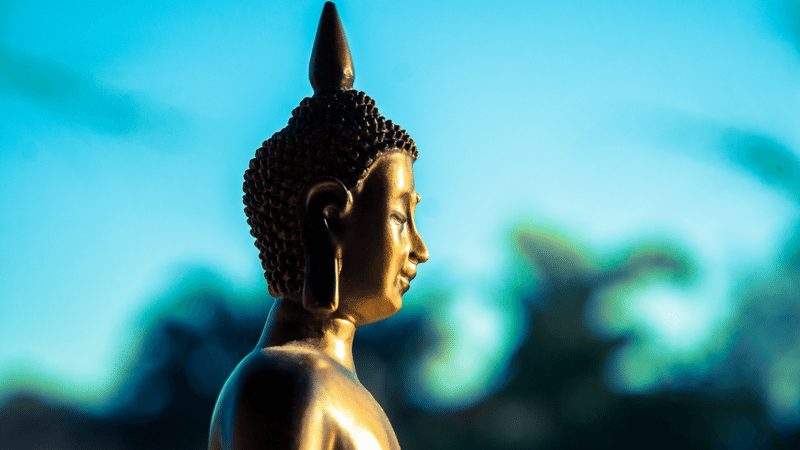Early Buddhist Wisdom—Getting to Grips with Experience
Episode #9 of the course What is wisdom: An introduction to philosophy by Will Buckingham
Having moved East from Greece to China, now we are going to move back West to India, where we are going to look at wisdom in early Buddhism.
The Origins of Buddhism
Buddhism begins with the figure of Siddhārtha Gautama, who lived in India around the 5th Century BCE. He came from a small, independent republic just south of the Himalayas. At that time (as today), there were very many wandering philosophers, meditators, religious practitioners, and truthseekers in India. And at some stage in his life, Siddhārtha Gautama joined their number, leaving his home to become a wandering philosopher. After an experience of bodhi, or “awakening,” he began to teach. By the time he died, he had already gained a large following, thanks to his distinctive ideas.
Buddhist Wisdom
Buddhism went on to become one of the world’s major religious and philosophical traditions, spreading from Afghanistan, Iran, and parts of Russia to China, Korea, and Japan. Along the way, Buddhist philosophy became bewilderingly complex. But today, we are just going to look at 1 small aspect from early Buddhism. The word often translated as “wisdom” is paññā. This comes from a root that means something like, “supreme knowing.” So, what do you know if you have paññā?
Three Marks
One answer to this question (there are other answers—Buddhism is complex!) is that you thoroughly know that our experience of the world has 3 characteristics. The 1st of these is that experience is unsatisfactory or frustrating—it is never quite how we want it to be. The 2nd is that experience is impermanent—it changes from moment to moment. One moment, you are calm and content; the next, you are craving a slice of cake; the next, you are angry at the neighbor’s cat. The 3rd characteristic is that experience is insubstantial. This takes a bit more unpacking, but in short, what it means is that there is no solid, fixed, unchanging self, separate from the experience itself, who is having the experience.
Getting It Wrong
Like Stoicism, Buddhism sees the problem in part as having views of the world, or of our experience, that do not correspond to the reality. If something is pleasant, we want to hold on to it, we want it to be permanent. We dream of a state where we can be free of frustration and unsatisfactoriness. We want to find, somewhere down there, a true self upon which we can absolutely depend. But when we get things wrong like this, the Buddhists claim, we cause ourselves more suffering.
What Do Buddhists Do?
Wisdom, of course, also involves what we do. In Buddhism, it is generally seen as a difficult thing to come to see the world of experience clearly. Buddhism proposes methods for looking more dispassionately at our experience, so we see what is really going on, rather than what we would like to be going on. One of the methods of doing this is meditation, where we pay close attention to the world of our experience, effectively turning the mind back upon itself to see how it operates.
Contemporary approaches to “mindfulness” draw heavily upon Buddhist traditions. Tomorrow, in our final lesson, we’ll move on to the question of what wisdom might mean in the modern world and how philosophy may still have something to teach us.
Recommended book
Dhammapada, the Buddhist source for the “3 marks”
Recommended podcast
Buddhist Philosophy by Philosophy now
Share with friends

